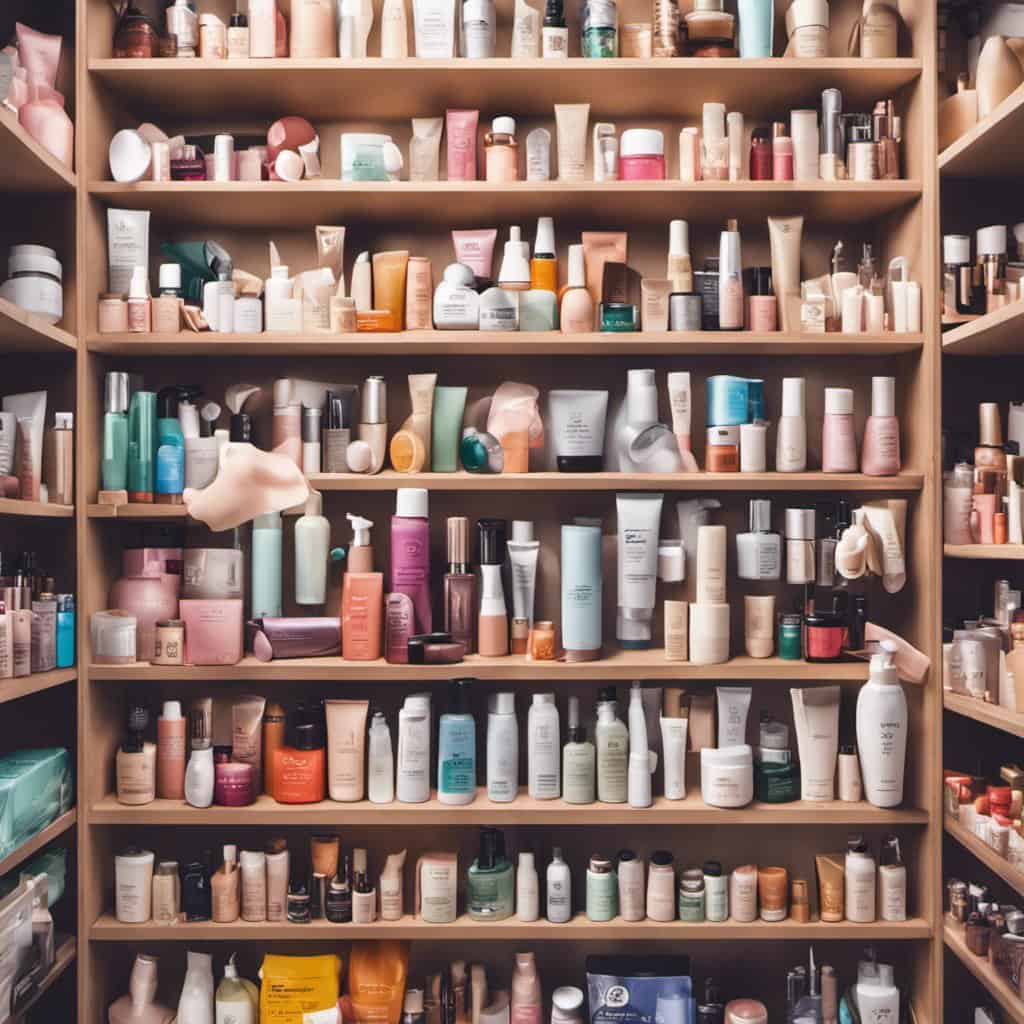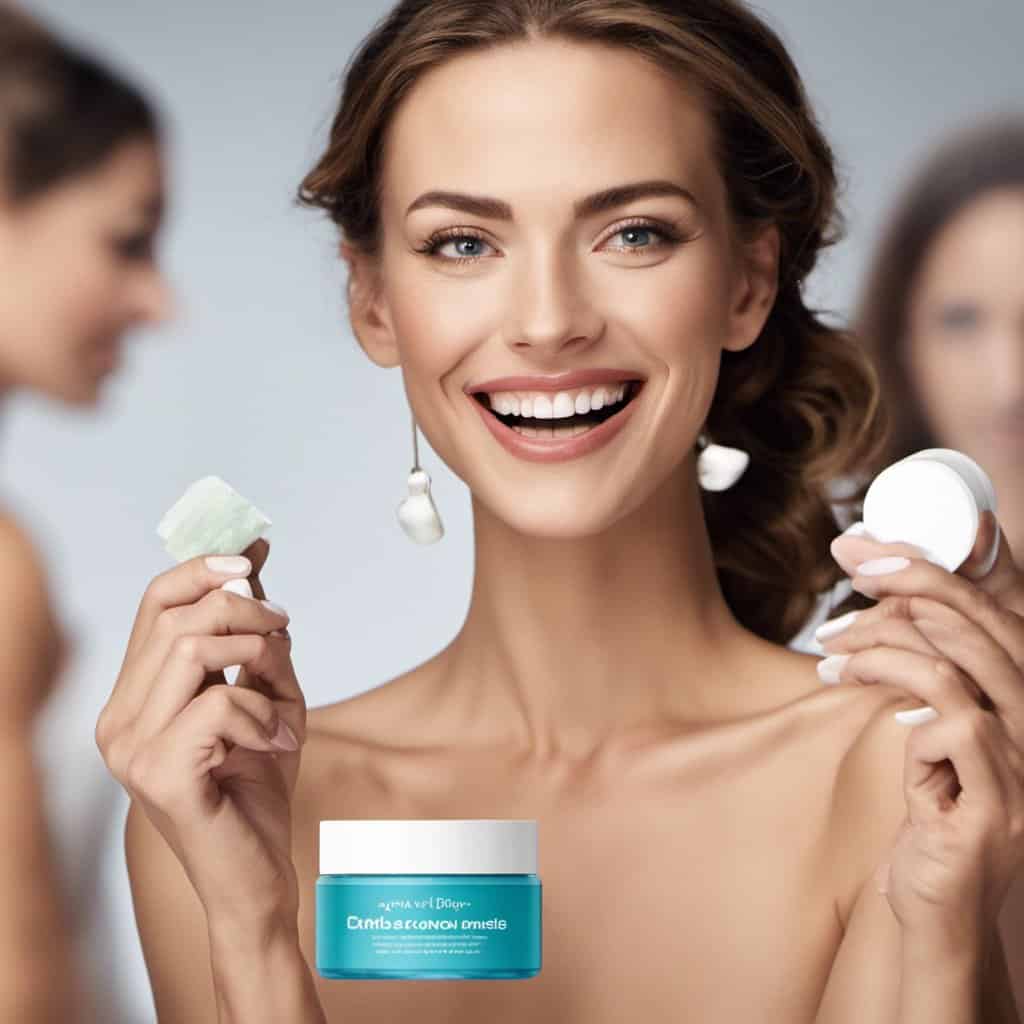Over the past few years, the beauty industry has seen an influx of celebrity beauty brands. These brands have gained immense consumer popularity, from Rihanna’s Fenty Beauty to Kylie Jenner’s Kylie Cosmetics. However, not all celebrity beauty brands have been successful. In fact, many have failed to make a mark in the industry and have faded away quietly.
Some have been criticized for lacking inclusivity, while others have been accused of copying existing products. In some cases, the products’ quality has been questioned, leading to poor reviews and low sales. While some brands have managed to overcome these challenges and achieve success, others have struggled to stay afloat.
According to a recent report, 90% of all new brand launches across CPG fail. Celebrity beauty brands are no exception to this trend. From Gwyneth Paltrow’s Goop to Lindsay Lohan’s makeup line, many examples of celebrity beauty brands have failed to make a lasting impact.
The Rise and Fall of Celebrity Beauty Brands

Market saturation and quality concerns are just two of the many factors that can impact the success of a celebrity beauty brand. Let’s explore how these affect brands:
Market Saturation
Market saturation is one of the main reasons for the failure of celebrity beauty brands. With so many brands entering the market, it can be difficult for new brands to stand out and gain traction. Consumers are already overwhelmed with choices, and adding more brands can lead to confusion and decision fatigue.
Furthermore, many consumers are becoming more discerning in their purchasing habits and are looking for brands that align with their values and beliefs. This has led to increased demand for sustainable, ethical, and inclusive beauty products, which can be difficult for new brands to achieve.
Quality Concerns
Another reason for the failure of celebrity beauty brands is quality concerns. Many consumers expect high-quality products from celebrity brands and quickly criticize brands that fail to meet their expectations. This can be particularly problematic for new brands, which may not have the resources or expertise to produce high-quality products.
Many consumers are also wary of celebrity brands that appear more focused on marketing and celebrity endorsements than product quality. This can lead to a lack of trust in the brand, which can be challenging to overcome.
Notable Celebrity Beauty Brand Failures
Here are examples of celebrity beauty brands that have been successful or have failed to make a lasting impact in the market:
Lindsay Lohan: Sevin Nyne
Lindsay Lohan’s Sevin Nyne self-tanning mist was launched in 2009 and was expected to be a hit. However, the brand was doomed from the start. The product was initially released with a faulty nozzle that caused the spray to come out in streaks, leaving customers with uneven, blotchy tans. The brand also faced criticism for false advertising, as the product claimed to be all-natural but was found to contain a synthetic chemical called DHA. The brand was eventually discontinued in 2010, and Lohan was sued for breach of contract by the company that helped her develop the product.
Jessica Simpson: Dessert Beauty
Jessica Simpson’s Dessert Beauty line, which included lip gloss, body lotion, and fragrance products, was launched in 2004 and was marketed as a “lickable” line of cosmetics. The brand was initially successful but faced backlash for its sexualized marketing and claims that the products were edible. The brand was eventually discontinued in 2006, and Simpson was sued by the company that helped her develop the line for breach of contract.
Kylie Jenner: Kylie Skin
Kylie Jenner’s Kylie Skin line, which includes products such as face wash, moisturizer, and eye cream, was launched in 2019 and was expected to be a huge success, given Jenner’s massive social media following. However, the brand faced criticism for its lack of transparency about its ingredients and high prices. The brand also faced backlash for its walnut face scrub, which was found to be too abrasive and damaging to the skin. Despite the initial hype, the brand’s sales reportedly declined by 14% in its second month.
Analysis of Failure

The failure of celebrity beauty brands can be attributed to several factors, including inadequate market research, poor product quality, and misaligned brand image. We’ll analyze these factors of failure for some specific brands:
Inadequate Market Research
One of the main reasons why celebrity beauty brands fail is inadequate market research. Many celebrities assume their fame alone will be enough to sell their products. However, they may not understand their target audience’s needs and preferences without proper research.
For example, Alicia Keys launched a skincare brand called “Keys Soulcare” to promote self-care and natural beauty. However, the brand failed to resonate with consumers due to its high prices and lack of diversity in product offerings.
Similarly, some celebrities may not consider the competition in the market. For instance, Jessica Alba’s “The Honest Company” brand faced stiff competition from established brands like Johnson & Johnson and Pampers. The Honest Company failed to differentiate itself in the market, leading to its downfall.
Poor Product Quality
Another reason for the failure of celebrity beauty brands is poor product quality. Consumers expect high-quality products from celebrity brands, and any shortcomings can lead to negative reviews and a loss of trust.
For example, Miranda Kerr’s brand “Kora Organics” faced criticism for its poor quality products that caused skin irritation and breakouts.
Likewise, some celebrities may lack the expertise to create high-quality products. For example, Kylie Jenner’s brand “Kylie Skin” received backlash for its subpar skincare products containing harmful ingredients like walnut shells.
Misaligned Brand Image
Finally, a misaligned brand image can also contribute to the failure of celebrity beauty brands. If the brand image does not align with the celebrity’s public persona, it may confuse consumers and lead to a lack of trust. An example is Lindsay Lohan’s brand “Sevin Nyne,” which faced criticism for its association with the actress’s troubled past.
Moreover, some celebrities may not have a clear brand image, leading to confusion among consumers. For instance, Kim Kardashian’s “KKW Beauty” brand faced criticism for its lack of brand identity and similarity to her sister Kylie Jenner’s brand.
Lessons Learned from Failed Celebrity Beauty Brands

Launching a successful celebrity beauty brand requires careful planning, research, and development. Here are a few lessons we can be learned from failed celebrity beauty brands:
1. Don’t Ignore the Needs of Your Target Audience
Understanding your audience’s preferences, skin types, and beauty concerns is essential before launching a product. For example, if your target audience is predominantly women of color, ensuring that your products are inclusive and cater to a diverse range of skin tones is crucial.
2. Don’t Rely Solely on Your Name
While a celebrity’s name can undoubtedly attract attention to a beauty brand, it is not enough to guarantee its success. Consumers want high-quality products that deliver results, and if a celebrity beauty brand fails to meet these expectations, it will not succeed. Therefore, investing in research and development is essential to ensure that the products are of the highest quality.
3. Don’t Overprice Your Products
Consumers are willing to pay a premium for high-quality products but will not pay an exorbitant amount for a product that does not deliver results. Therefore, it is essential to price products competitively and ensure they are affordable for the target audience.
4. Don’t Neglect Marketing and Promotion
Marketing and promotion are critical for the success of any beauty brand, including celebrity beauty brands. Neglecting these can result in poor sales and low brand awareness. Therefore, investing in marketing and promotion is essential to ensure that the target audience is aware of the brand and its products.
Conclusion
As noted by Cosmetics Design, of the 37 celebrity beauty brands measured in their database, only 22 experienced year-over-year growth, while five are in decline. While this may seem promising, it is essential to note that 90% of all new brand launches across CPG fail, meaning that the growth rates for celebrity beauty brands are only slightly better than average.
But while the decline of celebrity beauty brands can be attributed to several factors, including oversaturation in the market, lack of innovation, and a growing consumer preference for “clean” and sustainable products, it’s important to mention that the pandemic has also shifted consumer priorities, with many people focusing on self-care and wellness rather than makeup and beauty.
Moving forward, it is likely that we will see fewer celebrity beauty brands launching, and those that do will need to be more innovative and sustainable to succeed. Because while celebrity endorsements can be powerful marketing tools, they are not enough to sustain a brand in the long term. Ultimately, the success of a beauty brand will depend on its ability to offer unique and high-quality products that meet consumers’ evolving needs and preferences.
Frequently Asked Questions
What are some examples of failed celebrity beauty brands?
There have been several celebrity beauty brands that have failed to make an impact in the market. Some examples include Fenty Skin by Rihanna, Honest Beauty by Jessica Alba, and Kylie Skin by Kylie Jenner. Despite the hype surrounding their launches, these brands failed to meet consumer expectations and sustain their initial success.
What are the reasons behind the failure of celebrity beauty brands?
There are several reasons why celebrity beauty brands fail. One of the main reasons is the lack of authenticity and credibility of the celebrity behind the brand. Consumers are becoming increasingly aware that celebrities are not necessarily experts in the beauty industry and may not have the same level of expertise as established beauty brands. Additionally, some celebrity beauty brands may lack innovation and differentiation, leading to a lack of interest from consumers.
How do failed celebrity beauty brands affect the beauty industry?
Failed celebrity beauty brands can have a negative impact on the beauty industry as a whole. They can create a sense of skepticism among consumers, making them less likely to try new brands or products. Additionally, the failure of celebrity beauty brands can make it difficult for new and upcoming brands to establish themselves in the market.
Are there any successful celebrity beauty brands?
Yes, there are several successful celebrity beauty brands, including KKW Beauty by Kim Kardashian, Huda Beauty by Huda Kattan, and Fenty Beauty by Rihanna. These brands have been able to establish themselves in the market by offering innovative and high-quality products that meet the needs and expectations of consumers.
What can be learned from the failures of celebrity beauty brands?
The failures of celebrity beauty brands can provide valuable lessons for both established and upcoming brands. One of the main lessons is the importance of authenticity and credibility. Brands that are able to establish themselves as experts in their field and build trust with their consumers are more likely to succeed. Additionally, brands should focus on innovation and differentiation to stand out in a crowded market.
What impact do celebrity beauty brands have on consumers’ purchasing decisions?
Celebrity beauty brands can have a significant impact on consumers’ purchasing decisions. Many consumers are drawn to celebrity beauty brands because of the association with their favorite celebrities. However, the failure of celebrity beauty brands can also create a sense of skepticism among consumers, making them more cautious when trying new products. Ultimately, consumers will continue to make purchasing decisions based on the quality and effectiveness of the products, regardless of the celebrity behind the brand.
